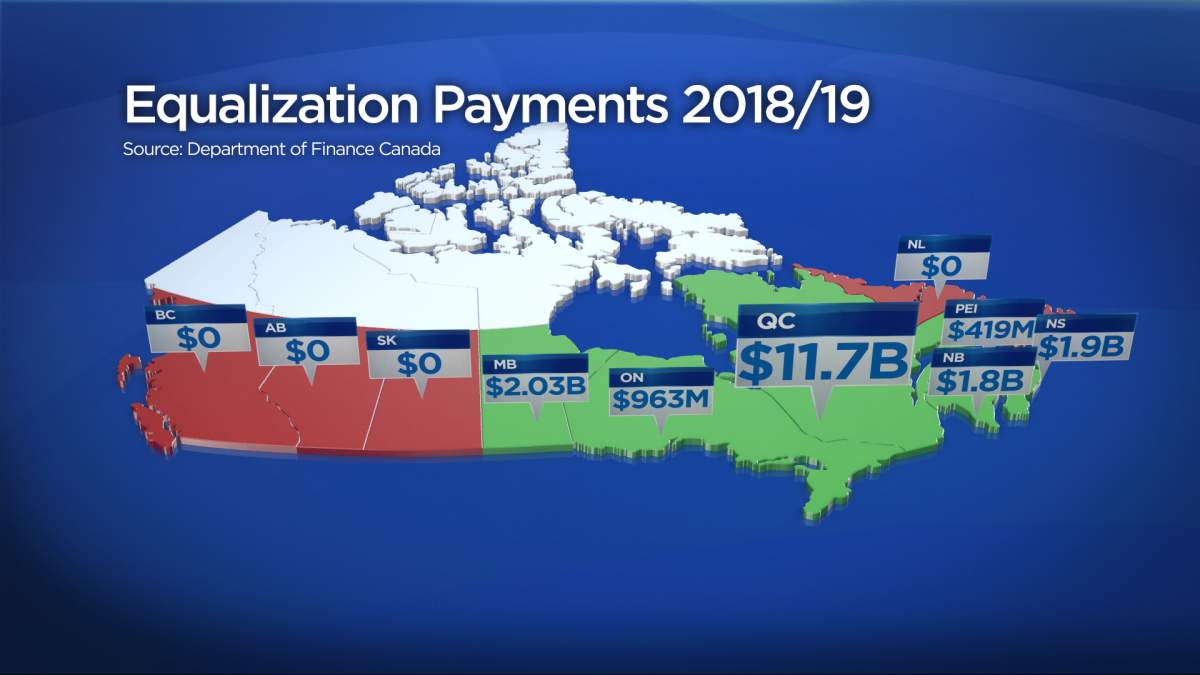Anger boiled over anew with the recent renewal of the equalization program.

But is it fair to say Alberta is being handed a raw deal when it comes to equalization? University of Alberta political scientist Jared Wesley helps us sort it out.
Under the formula, in 2018-19, Alberta, Saskatchewan, B.C. and Newfoundland get nothing. Five other provinces receive between $400 million and $2 billion. Quebec gets more than $11 billion.
But where does that money come from?
Professor Jared Wesley: “It comes straight from the federal government, and it goes to provinces that are below average in terms of their economic performance. It goes to them so they can provide programs and services to Canadians without breaking their wallet through higher taxes.”

Get weekly money news
Does the Alberta government give money to other provinces?
Nope.
Wesley: “It’s a big myth that Alberta sends equalization payments to Ottawa, or in some cases — people believe — directly to other governments.
That’s not the way it works.
Albertans as individuals and their corporations pay income taxes directly to the federal government, and the federal government then sends some of that money out to other provinces.”
READ MORE: Equalization debate re-emerges ahead of ministers’ meeting in Ottawa
It’s about capacity
An important element of the formula is each province’s capacity to generate revenue. Wesley points to a graph compiled by the University of Calgary’s Trevor Tombe, which shows how the program tops up provinces to a national average. Alberta’s numbers tower over the rest.
Wesley: “To say that Alberta is disadvantaged by equalization is a bit of a tough case to make if you look at a graph like this that shows Alberta still makes more money and has higher levels of public service than anywhere else in the country.
“As long as oil and gas is flowing at all in this country, Alberta will still make more than the national average, and as a result will never receive equalization.”
The numbers game: More wealthy people in Alberta, means collectively Alberta pays more
Wesley: “There’s no disputing Albertan businesses and individuals are higher earners, so they send more of their tax money to Ottawa. And as a result, we tend to get less return from the federal government when it comes to programs, services and transfers. About 60 to 70 cents on every dollar we send to Ottawa, we get back in the form of federal services.”
READ MORE: Federal government ignores Saskatchewan’s call for changes to equalization










Comments
Want to discuss? Please read our Commenting Policy first.